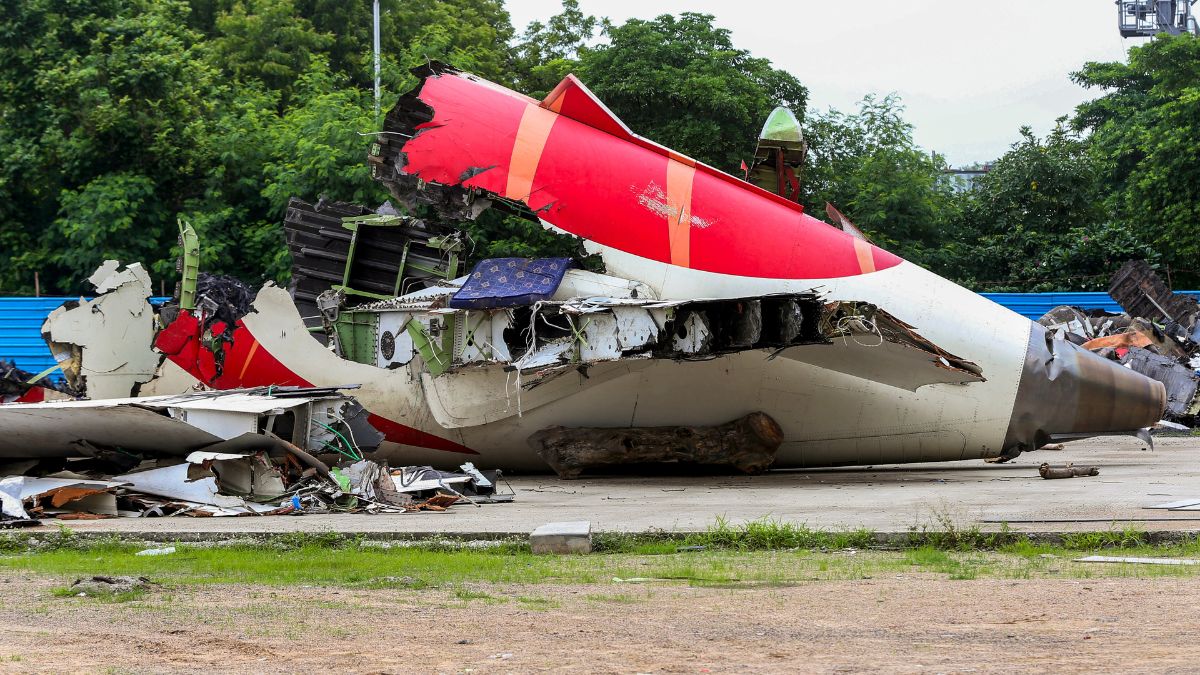Ahmedabad Air India crash: Potential technical malfunction under scrutiny
 Wreckage of Air India's Boeing 787-8 aircraft, which was operating flight AI 171 from Ahmedabad to London, placed under tight security, seen a month after the tragedy, in Ahmedabad | PTI
Wreckage of Air India's Boeing 787-8 aircraft, which was operating flight AI 171 from Ahmedabad to London, placed under tight security, seen a month after the tragedy, in Ahmedabad | PTI
Investigators involved in the Ahmedabad Air India crash probe are trying to ascertain whether any software or technical snag resulted in unintentionally activating the fuel cutoff switches to both engines of the AI171 aircraft. The development comes amid speculations that pilots' error caused the crash.
According to The Indian Express, investigators are checking the trail of errors during the entire lifetime of the Boeing 787-8 aircraft involved in the crash. An official involved in the investigation told the publication that a software or technical malfunction could have sent false electronic signals, resulting in the fuel cutoff switches getting activated.
The Aircraft Accident Investigation Bureau (AAIB) released a preliminary probe report on July 12. The report said that soon after the London-bound flight took off from Ahmedabad International Airport, the fuel cutoff switches to both engines activated simultaneously. Though the pilots attempted to restore fuel supply and recover thrust speed, the aircraft crashed.
“The malfunction is a critical issue as it can trigger incorrect responses in flight control, including unintended fuel cut-off signal,” an official involved in the probe told the publication. “The probe is on to ascertain if the switch locks were disengaged due to an anomaly or if the FADEC’s (Full Authority Digital Engine Control) Engine Control Unit (the brain of the aircraft) malfunctioned as the microprocessor could have misinterpreted the commands and initiated uncontrolled actions,” he told IE.
According to the AAIB report, pilots who operated the aircraft prior to AI171 flight had noted issues with the Stabilizer Position Transducer in the technical log. The report said technical engineers did troubleshooting and addressed the issue. “The Stabilizer Position Transducer malfunction did not cause this crash, but the question is whether it led to multiple sensor failure," the official said.
Air India, in an internal memo on Wednesday, said it had completed mandatory checks of fuel switches on its Boeing 787 fleet and no issues were found. "Our engineering team initiated precautionary inspections on the locking mechanism of the Fuel Control Switch (FCS) on all our Boeing 787 aircraft. The inspections have been completed and no issues were found," it said. "With this, Air India has complied with the directives of the DGCA issued on Monday, 14 July," it added.
The airline also said all its Boeing 787-8 aircraft have also undergone Throttle Control Module (TCM) replacement as per the Boeing maintenance schedule. The FCS is part of this module.
India